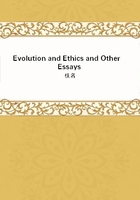
第67章
The "Times," December 11th, 1890 Sir,--When I first addressed you on the subject of the projected operations of the Salvation Army, all that I knew about that body was derived from the study of Mr. Booth's book, from common repute, and from occasional attention to the sayings and doings of his noisy squadrons, with which my walks about London, in past years, have made me familiar. I was quite unaware of the existence of evidence respecting the present administration of the Salvation forces, which would have enabled me to act upon the sagacious maxim of the American humourist, "Don't prophesy unless you know." The letter you were good enough to publish has brought upon me a swarm of letters and pamphlets. Some favour me with abuse; some thoughtful correspondents warmly agree with me, and then proceed to point out how much worthier certain schemes of their own are of my friend's support; some send valuable encouragement, for which I offer my hearty thanks, and ask them to excuse any more special acknowledgment. But that which I find most to the purpose, just now, is the revelation made by some of the documents which have reached me, of a fact of which I was wholly ignorant--namely, that persons who have faithfully and zealously served in the Salvation Army, who express unchanged attachment to its original principles and practice, and who have been in close official relations with the "General" have publicly declared that the process of degradation of the organization into a mere engine of fanatical intolerance and personal ambition, which I declared was inevitable, has already set in and is making rapid progress.
It is out of the question, Sir, that I should occupy the columns of the "Times" with a detailed exposition and criticism of these pieces justificatives of my forecast. I say criticism, because the assertions of persons who have quitted any society must, in fairness, be taken with the caution that is required in the case of all ex parte statements of hostile witnesses. But it is, at any rate, a notable fact that there are parts of my first letter, indicating the inherent and necessary evil consequences of any such organization, which might serve for abstracts of portions of this evidence, long since printed and published under the public responsibility of the witnesses.
Let us ask the attention of your readers, in the first place, to "An ex-Captain's Experience of the Salvation Army," by J. J. R. Redstone, the genuineness of which is guaranteed by the preface (dated April 5th, 1888) which the Rev. Dr. Cunningham Geikie has supplied. Mr.
Redstone's story is well worth reading on its own account.
Told in simple, direct language such as John Bunyan might have used, it permits no doubt of the single-minded sincerity of the man, who gave up everything to become an officer of the Salvation Army, but, exhibiting a sad want of that capacity for unhesitating and blind obedience on which Mr. Booth lays so much stress, was thrown aside, penniless--no, I am wrong, with 2s. 4d. for his last week's salary--to shift, with his equally devoted wife, as he best might. I wish I could induce intending contributors to Mr. Booth's army chest to read Mr.
Redstone's story. I would particularly ask them to contrast the pure simplicity of his plain tale with the artificial pietism and slobbering unction of the letters which Mr. Ballington Booth addresses to his "dear boy" (a married man apparently older than himself), so long as the said "dear boy" is facing brickbats and starvation, as per order.
I confess that my opinion of the chiefs of the Salvation Army has been so distinctly modified by the perusal of this pamphlet that I am glad to be relieved from the necessity of expressing it. It will be much better that I should cite a few sentences from the preface written by Dr. Cunningham Geikie, who expresses warm admiration for the early and uncorrupted work of the Salvation Army, and cannot possibly be accused of prejudice against it on religious grounds:-, "The Salvation Army is emphatically a family concern. Mr.